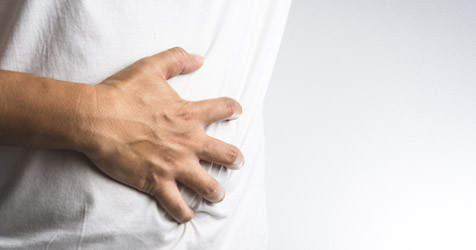
GALL BLADDER REMOVAL: DIET AND LIFESTYLE RESTRICTIONS
Dr. G. Parthasarathy, Thursday, November 7, 2019WHAT IS GALL BLADDER REMOVAL?
Sometimes gallbladder may be affected by conditions such as gangrene, abscesses, gallstones and inflammation. This may result in severe pain. Drug therapy is used to treat the condition, but sometimes a cholecystectomy -- removal of the gallbladder -- is necessary.
WHAT ARE THE DIET RESTRICTIONS TO BE CONSIDERED?
After the surgery, doctors may recommend some dietary changes. These include:
- A liquid diet at first and then advanced to a regular diet as tolerated.
- Consume only lean proteins.
- Opt for fish, shellfish, chicken and turkey without the skin. Refrain from consuming processed meats, as these are high in fat.
- Eat foods high in fibre like whole grain cereals. The dietary fibre in fruits, vegetables and whole grains will provide satiety in a low-fat diet. Fibber may also help you control the diarrhoea symptoms that may be experienced after surgery.
- Opt for whole grain products such as brown rice, whole grain bread and pasta.
- Drink plenty of water and fruit juices with no sugar added.
- Drink plenty of water
- Avoid alcoholic drinks; they may add metabolic stress to your liver.
- Avoid carbonated beverages and beverages that may cause you pain, gas, bloating, discomfort or diarrhoea.
HOW IS LIFE AFTER GALLBLADDER SURGERY?
Abdominal pain, nausea, gas, bloating, and diarrhoea are common following surgery.
Postcholecystectomy syndrome (after gallbladder removal syndrome) may include all of the above symptoms plus indigestion, nausea, vomiting and constant pain in the upper right abdomen. Up to 40% of people who undergo gallbladder surgery will experience these symptoms for months or years after surgery.
IS THERE WEIGHT GAIN AFTER GALLBLADDER SURGERY?
First of all, even though the liver continues to make bile, the gallbladder concentrates it, making it more effective and it also controls the rate at which it is released, giving larger amounts when needed. Without a gallbladder, that is no longer happening. So, for many people, their fat metabolism is not nearly as efficient as it should be. Truthfully, people with any gallbladder disease may have trouble with weight gain due to faulty fat digestion.
However, other factors are likely involved simultaneously. Many of these, in and of themselves, also cause weight gain. Low thyroid, insulin resistance, heartburn and indigestion, acid reflux. Until they are addressed, you may find maintaining a normal weight more and more difficult as time goes on.
WHY KIMS?
KIMS, one of the best gall bladder surgery hospitals in Hyderabad, offers a variety of options including laparoscopic gallbladder removal. Our best gallbladder removal surgery specialist in Hyderabad in tandem with our best gastroenterology surgeon in Hyderabad provide the best options for gallbladder surgery as well as post-operative care and instructions. Doctors at KIMS will ensure that you are following the diet and lifestyle regulations after the surgery so that there is optimal chances of recovery.